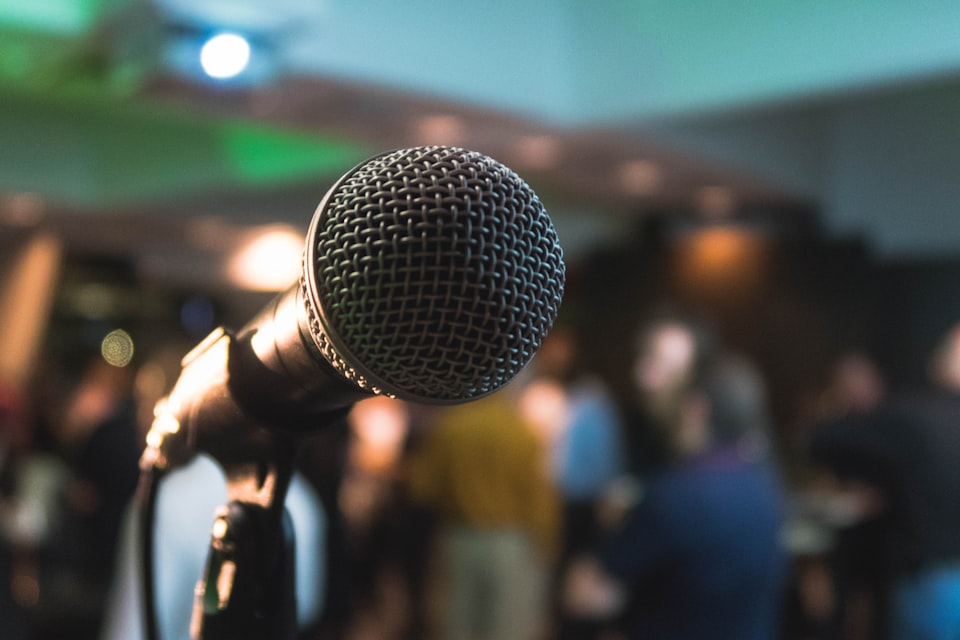How to be a great public speaker

I'm an academic, and I hate one thing about my world. I hate how acceptable it is to have presentations and lectures that no one understands.
Businesses spend the vast majority of their time (estimates are around 70%) on marketing and sales. Businesses understand that if they want to survive, they need to master their communcation.
Academics are the other around. They barely spend 10% of their time communicating their work. And these are the academics who are prioritising public engagement! The others barely care.
Academic or not, we should all learn to communicate better. It is needed to sustain our message, and get paid or funded for it. It is needed for having an impact. We have to say NO to boring presentations.
I've had the fortune of speaking in front of large crowds since the age of 14 (I once spoke to an audience of 10,000+). Here is my understanding of how to be a good public speaker.
Become Rejection Proof
The nerves you feel before hitting the stage is the fear of rejection. Studies have shown that social rejection activates the insula, the part of the brain implicated in physical pain and the experience of disgust.
The good news is that most fears of rejection are miscalibrated. We might think that people will dislike us, but in reality, most people appreciate a person who has the courage to take the microphone. Most people are supportive.
You can burn out the rejection circuit through deliberate exposure. Every day, do something that might trigger a rejection. Ask for a discount on your next purchase. Ask someone out. Sing in front of people when you know you're tone deaf. You get the idea.
The more rejection-proof you are, the more confidence you'll project.
A couple of years ago, I did 3 days a week of social rejection practice. Just like hitting the gym, you can have a "social workout" session. Social confidence is a muscle.
Reduce Perfectionism
If you are interested in giving impromptu speeches, this one is a biggie. Most people think that they need to rehearse their speeches a thousand times before they deliver it.
While some practice can be useful, obsessing about it can lead to a kind of paralysis. You don't feel like you're speaking naturally anymore, and that leads to people disconnecting.
Lower the barrier. You'll be surprised at how much people respond positively.
A few months ago, I ran a full 2-week course impromptu. That's 3 hours of talking a day for two weeks. And the results were amazing: almost everyone in the course had absolutely fantastic reviews and engaged deeply with the class.
Learn to Stand and Move
You may notice that people who practice yoga, dance, or martial arts have an elegance to their movement. They may have a rhythm to their walk, or an expression in their movement.
Movement can be learned. And movement can be a great tool for storytelling.
I suggest getting yourself involved with an embodied art - dance, method acting, jiu jitsu, all work well.
Add Melody to Your Speech
Roger Love, the world's leading voice coach, says that speaking is the same as singing. When we speak, we are uttering notes. Every syllable can be mapped to a key on the piano.
The problem is, most people are using just one note as they speak. As a result, it feels like we are listening to a disinterested robot.
Even the bravest of speakers only use 2 or 3 notes.
This can be changed. I try to use about 2 octaves when I am speaking. Every time I have a presentation, I do a vocal warmup (from Roger's course The Perfect Voice for Speakers). This warms up my vocal chords to travel up and down with ease. They also improve your air flow, breathing, and posture.
I also do vocal exercises before recording my Youtube videos and podcasts.
Want to see an example? Check out my latest video on why you should build an email list. Can you spot my vocal inflections and the deliberate use of melody?
